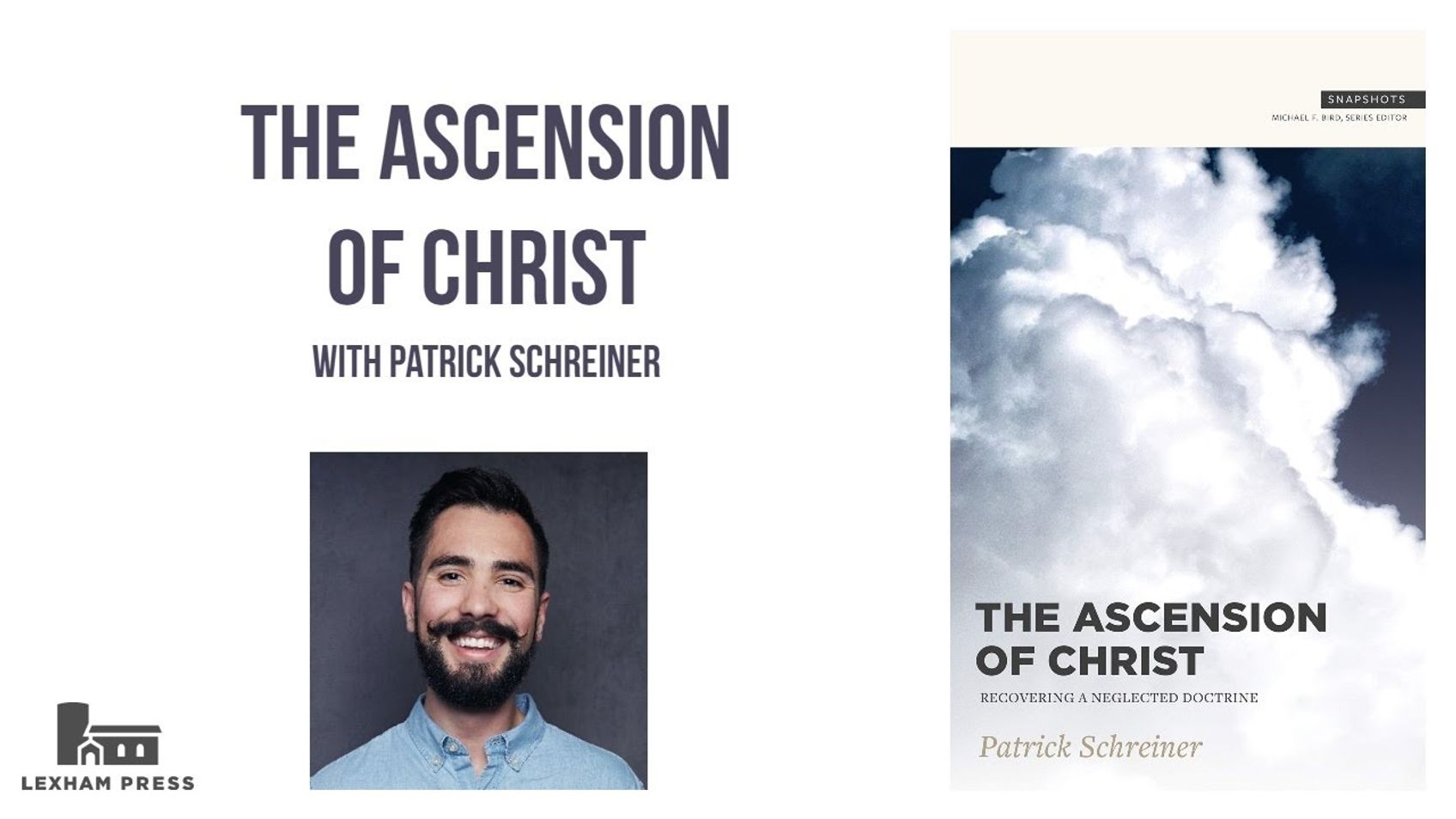The Ascension of Christ (Patrick Schreiner)
May 21, 2020

Alastair Roberts
Patrick Schreiner joins me to discuss his forthcoming book, 'The Ascension of Christ: Recovering a Neglected Doctrine': https://lexhampress.com/product/189139/the-ascension-of-christ-recovering-a-neglected-doctrine.
This video is sponsored by Lexham Press: https://lexhampress.com/.
More From Alastair Roberts
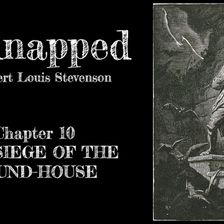
Kidnapped—Chapter 10: The Siege Of The Round-House
Alastair Roberts
May 21, 2020
For the Easter season, I am posting some rather different things on this channel, in addition to my regular output, as a little gift to my followers a
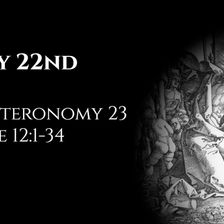
May 22nd: Deuteronomy 23 & Luke 12:1-34
Alastair Roberts
May 21, 2020
Various laws concerning the principle of adultery and stealing. Worry and money.
Reflections upon the readings from the ACNA Book of Common Prayer (h
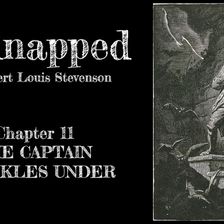
Kidnapped—Chapter 11: The Captain Knuckles Under
Alastair Roberts
May 22, 2020
For the Easter season, I am posting some rather different things on this channel, in addition to my regular output, as a little gift to my followers a
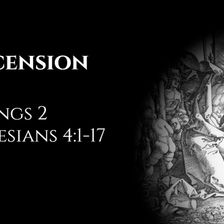
Ascension Day: 2 Kings 2 & Ephesians 4:1-17
Alastair Roberts
May 21, 2020
Elijah's Ascension, Elisha's Pentecost. The ascended Christ gives gifts to men.
Reflections upon the readings from the ACNA Book of Common Prayer (ht
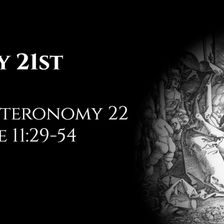
May 21st: Deuteronomy 22 & Luke 11:29-54
Alastair Roberts
May 20, 2020
Laws on protection of life and sexual offences. Woes to the Pharisees and scribes.
Reflections upon the readings from the ACNA Book of Common Prayer
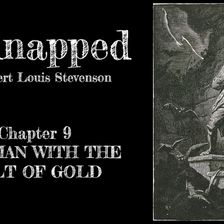
Kidnapped—Chapter 9: The Man With The Belt Of Gold
Alastair Roberts
May 20, 2020
For the Easter season, I am posting some rather different things on this channel, in addition to my regular output, as a little gift to my followers a
More on OpenTheo

The Man on the Middle Cross with Alistair Begg
Life and Books and Everything
November 10, 2025
If you haven’t seen the viral clip, go see it right now. In this episode, Kevin talks to Alistair about the preaching clip he didn’t intend to give, h

Are Demon Possessions and Exorcisms in the New Testament Literal?
#STRask
December 11, 2025
Questions about whether references to demon possessions and exorcisms in the New Testament are literal, how to talk to young children about ghosts, an

Is Greg Placing His Faith in the Wrong Thing?
#STRask
February 12, 2026
Questions about Greg placing his faith in his personal assessment of which truth claims best match reality rather than in the revelation of God in Jes

What Do You Think About Churches Advertising on Social Media?
#STRask
January 19, 2026
Questions about whether there’s an issue with churches advertising on social media, whether it’s weird if we pray along with a YouTuber, and whether C

Did Jesus Prove He Wasn’t Sinless When He Overturned the Tables?
#STRask
December 29, 2025
Questions about whether Jesus proved he wasn’t sinless when he overturned the tables, whether Jesus’ response to the Pharisees in Mark 3:22–26 was a b

Is It Possible There’s a Being That’s Greater Than God?
#STRask
February 5, 2026
Questions about whether it’s possible there’s a being that’s greater than God and that’s outside of God’s comprehension and omniscience, and how to ex

Kingdom Priorities: Following the Teachings of Jesus
Knight & Rose Show
February 14, 2026
Wintery Knight and Desert Rose discuss Jesus' teachings from the Gospels, emphasizing truth, evidence, self-denial, and forgiveness. They explore pass

When I Can’t Stop Thinking About Something, Is That God Speaking?
#STRask
December 1, 2025
Questions about whether having a recurring thought is an indication God is speaking to you, what to say to someone who says they sinned because “God t

Christmas Cranks and Christmas Blessings with Justin Taylor and Collin Hansen
Life and Books and Everything
December 17, 2025
If you are looking for a podcast where three friends talk about whatever they want to talk about and ramble on about sports, books, and grievances, th

Does God Really Need a “Pound of Flesh” to Forgive Sins?
#STRask
January 12, 2026
Questions about how to answer the challenge that God doesn’t need a “pound of flesh” to forgive sins but can simply forgive, and whether the claim in

Lora Ries: Border Security and Immigration Policy
Knight & Rose Show
December 7, 2025
Wintery Knight and Desert Rose welcome Lora Ries to discuss border security and immigration policy. They explore Biden's policy changes, like ending R

Prove to Me That Jesus Is Not a Created Being
#STRask
January 26, 2026
Questions about why we should think Jesus is not a created being, and what it means to say God became fully human if part of being human means not bei

What Is the Role of the Holy Spirit in Our Lives if He Doesn’t Give Us Instructions?
#STRask
February 23, 2026
Questions about the role of the Holy Spirit in our lives, advice for someone who believes in God intellectually but struggles to understand how to hav

Keri Ingraham: School Choice and Education Reform
Knight & Rose Show
January 24, 2026
Wintery Knight and guest host Bonnie welcome Dr. Keri Ingraham to discuss school choice and education reform. They discuss the public school monopoly'

Could the Writers of Scripture Have Been Influenced by Their Fallen Nature?
#STRask
October 23, 2025
Questions about whether or not it’s reasonable to worry that some of our current doctrines were influenced by the fallen nature of the apostles, and h
